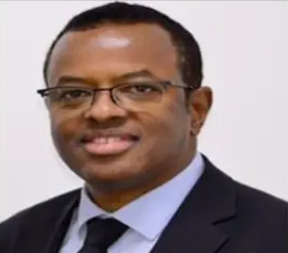In March 2024, AFI welcomed the Central Bank of Somalia (CBS) as a new Associate Member. We are pleased to publish an interview with CBS Governor Abdirahman Mohamed Abdullahi, on the state of financial inclusion in the country, the Central Bank’s projects and target groups, and how CBS is hoping to benefit from joining the AFI network.
 |
What difficulties do Somali people face in accessing financial services?
Somalia is one of the poorest and most fragile countries in the world, making it highly susceptible to climate shocks and insecurity. Despite the government’s long-standing commitment to economic and institutional reforms, poverty and unemployment remain pervasive, particularly among women and youth. Limited economic growth, remittances from the diaspora, and international aid provide essential funding to support some livelihoods, but this is not sufficient for reducing poverty.
|
Somalia’s financial system is in its developmental stages, and comprises the Central Bank of Somalia (CBS), 13 local commercial banks and one foreign bank branch, 14 money transfer businesses, and 4 mobile money service providers.
The microfinance industry is growing rapidly, however firms lack a regulatory framework for their operations. A revised Financial Institution Bill, currently going through parliament, will give CBS the regulatory framework to oversee the sector.
Despite the growing ecosystem of financial actors in Somalia, there are geographical, gender and age disparities in relation to access to finance. For instance, substantial loans are mainly limited to better-off and urban residents due to high collateral requirements.
Because the CBS has not issued Somali banknotes since the collapse of the state in 1991, nearly all Somali banknotes currently in circulation are considered counterfeit. Many small businesses operate in local currency (Somali Shillings), with over 80% of transactions being low-value transactions of less than 1 dollar. Participating in the dollarized financial system requires them to convert Shillings into US Dollars, effectively excluding a significant portion of the population.
Mobile money has become the preferred and primary mode of financial inclusion. This is reflected in its deep penetration within the country, with more than three-quarters of people over 16 years using mobile money. The dollarization of the economy (in banking and mobile money services) contributes to significant inequalities in financial access, however. A 2020 UNIDO report estimated that less than 15% of the Somalia population (only 7% of women) have access to bank accounts, and less than 5% of people with bank accounts are active users.
What is the Central Bank doing to promote financial inclusion in Somalia?
CBS has embarked on a range of transformative activities designed to mitigate the impact of financial exclusion. These include:
- Developing a Financial Inclusion Strategy in 2024, in line with the Federal Government’s reform agenda. Among the key themes of this strategy are digitalizing payments, and extending online banking services such as mobile wallets.
- Reintroduction of the Somali Shilling. The aim is to mop up counterfeit shillings in circulation, to contribute to an effective payment system and open the doors to those excluded from the dollarized payment system. This project will also enable CBS to develop a national monetary policy (using dual currency).
- In 2019, the Federal Government established a facility known as “Gargaara” which aims to unleash the potential of micro, small, and medium enterprises and enable them to access financial resources. Gargaara’s ever-growing portfolio reflects Somalia’s growing private sector, interconnected business community, and global trade and investment aspirations. Gargaara provides guidance and technical assistance to promote financial inclusivity, and adopts a dynamic strategy to instigate change in the financial domain.
Who are the key population groups you are focused on?
The target population groups for CBS’s Financial Inclusion Strategy are:
- Unbanked groups
- Youth and Women-led enterprises, who are usually unable to access credit due to collateral requirements.
- Small and Medium-sized Enterprises.
- Geographically remote residents such as rural and pastoral communities, internally displaced persons, and migrants.
What benefits do you hope membership of the AFI network can produce?
The Central Bank of Somalia expects to reap numerous benefits from its membership of the AFI network. These include access to a global platform for knowledge sharing and collaboration among regulators and policymakers, opportunities for networking, for instance through AFI Working Groups and Global Policy Forums, capacity building and technical assistance, and access to cutting-edge research and data on financial inclusion trends and best practices from around the world.
Joining the AFI network can also provide the Central Bank of Somalia with greater visibility and recognition on the global stage, which can potentially help Somalia to attract investment and foster economic growth.
You can learn more about the Central Bank of Somalia’s work on their website.

 About
About
 Online
Online
 Data
Data





















